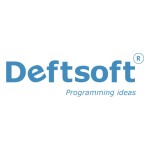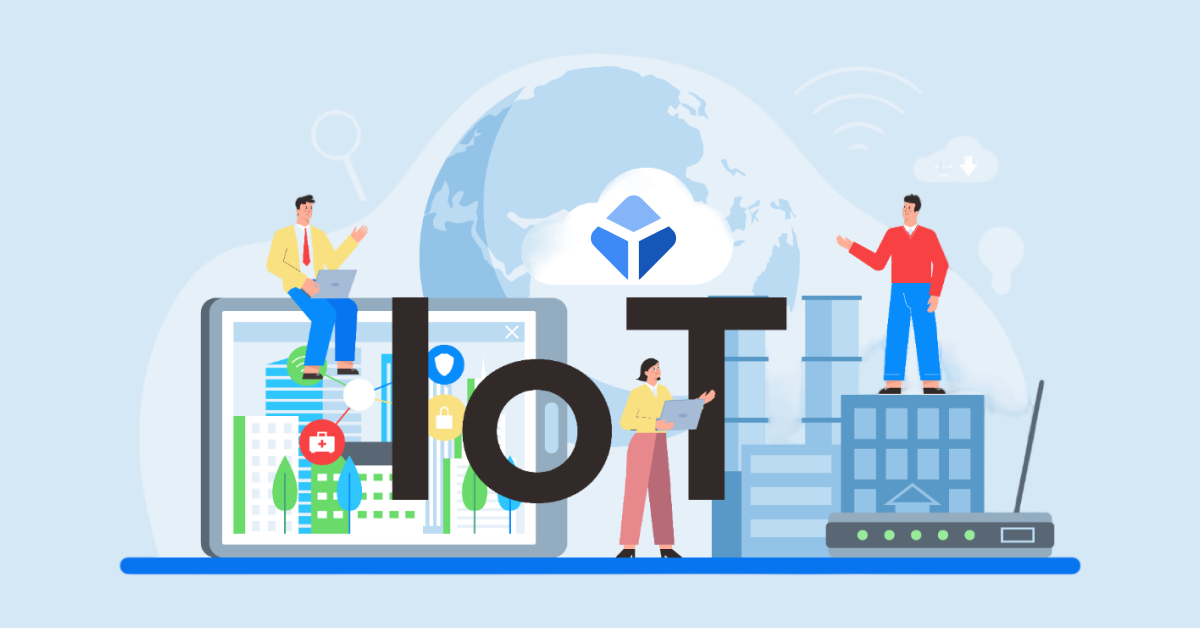The Internet of Things (IoT) is rapidly growing. According to Statista, the number of IoT-connected devices worldwide is expected to reach 30.9 billion by 2030. With this massive expansion, challenges like security risks, data integrity, and the sheer complexity of managing so many devices are becoming critical concerns for developers and businesses. More devices mean more entry points for hackers, and that can spell disaster if the right solutions aren’t in place.
Custom blockchain development services are emerging as a game-changer in tackling these issues. Blockchain technology brings much-needed security, transparency, and scalability to the IoT ecosystem. By using blockchain, businesses can ensure more secure device-to-device communication, enhance data integrity, and create decentralized, tamper-proof systems. In this article, we’ll take a closer look at the role custom blockchain development plays in shaping the future of IoT.
How Blockchain Solves IoT’s Challenges
The intersection of blockchain and IoT addresses key pain points in managing large-scale networks of connected devices. Let’s break down the main problems IoT faces and how blockchain provides solutions.
1. Security Vulnerabilities
One of the biggest concerns in IoT is the security of connected devices. The more devices added to a network, the more susceptible it becomes to cyberattacks. In 2020 alone, there were over 1.5 billion IoT breaches, according to research by Kaspersky.
Blockchain technology, with its decentralized and immutable nature, offers a strong solution here. Each IoT device can be registered on the blockchain, creating a secure and traceable identity. Transactions and data exchanges between devices are encrypted, and because blockchain is decentralized, there’s no central point of failure. If a hacker tries to manipulate data on one device, they’d have to manipulate the entire chain, which is nearly impossible.
2. Data Integrity
IoT systems rely on vast amounts of data, which need to be stored and managed efficiently. Ensuring that this data remains tamper-proof is crucial. Traditional centralized systems can be vulnerable to data breaches, leading to false or manipulated data.
Blockchain provides a tamper-proof ledger where every transaction is verified and recorded. This ensures data integrity because any changes are traceable, and attempts at unauthorized alterations are flagged immediately. Custom blockchain development services can be tailored to specific business needs, ensuring that IoT applications function with robust data protection.
3. Scalability Issues
As IoT networks grow, scalability becomes a critical factor. Traditional centralized systems struggle to manage the massive amount of data generated by billions of devices. This can slow down the entire network, leading to inefficiencies and bottlenecks.
With blockchain, scalability is improved by enabling peer-to-peer (P2P) communication between devices. Instead of relying on centralized servers, devices on a blockchain network communicate directly with each other. This reduces the load on any single server, allowing the network to handle more devices without sacrificing performance.
4. Decentralized Management
In centralized IoT systems, all devices are managed by a central authority, which creates bottlenecks and increases the risk of system-wide failures. When one part of the system goes down, the entire network can be affected.
Blockchain's decentralized nature means that no single entity controls the entire network. Instead, control is distributed across all devices connected to the blockchain. This not only makes the system more robust but also reduces the chances of a single point of failure.
The Role of Custom Blockchain Development Services
Now that we’ve covered the benefits of blockchain for IoT, let’s focus on the role of custom blockchain development services in this space. Off-the-shelf solutions may not meet the specific needs of every business or industry. This is where customization becomes crucial.
1. Tailored Solutions for Different Industries
Each industry has unique requirements when it comes to IoT and blockchain. For example, the healthcare industry needs solutions that ensure patient data is secure and private, while the supply chain industry might focus more on tracking goods in real-time. A blockchain development company can design custom protocols, smart contracts, and security measures tailored to these specific needs, ensuring optimal performance and compliance with industry regulations.
2. Interoperability Between Systems
One of the challenges businesses face is ensuring that their IoT devices can work with existing infrastructure. Custom blockchain development services can build solutions that allow blockchain to integrate seamlessly with current systems, whether it's cloud storage, APIs, or legacy software. This ensures businesses don’t have to overhaul their entire system to adopt blockchain.
3. Smart Contract Development
Smart contracts are self-executing contracts where the terms of the agreement are written into code. In an IoT context, smart contracts can automate processes, reducing the need for human intervention. For example, in the automotive industry, a smart contract could automatically initiate a vehicle part replacement when a sensor detects wear. Custom blockchain development allows businesses to create specific smart contracts that fit their operational needs.
The Future of Blockchain in IoT
As IoT continues to grow, blockchain will likely play an increasingly important role. According to research by MarketsandMarkets, the blockchain IoT market is expected to grow from $258 million in 2020 to $2.4 billion by 2026, with a CAGR of 45.1%. This shows how rapidly businesses are adopting blockchain technology to secure and scale their IoT systems.
Blockchain development companies are at the forefront of this transformation, creating customized solutions that address the unique challenges posed by IoT networks. By leveraging blockchain, businesses can ensure secure, efficient, and scalable IoT systems.
Conclusion: Why Custom Blockchain Development is Key for IoT
The combination of IoT and blockchain has the potential to revolutionize industries, but off-the-shelf solutions may not be enough to meet every need. Custom blockchain development services offer businesses the flexibility to build IoT systems that are secure, scalable, and tailored to their unique operational requirements. Companies like Deftsoft, a leading blockchain development company, are offering these custom solutions, helping businesses streamline their IoT networks and prepare for the future.
By addressing key challenges like security vulnerabilities, data integrity, and scalability, blockchain is not just enhancing the IoT but also paving the way for a more secure and efficient connected world.






Comments